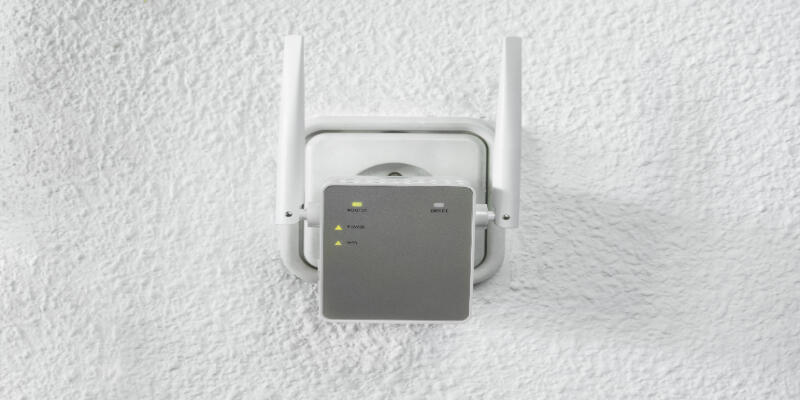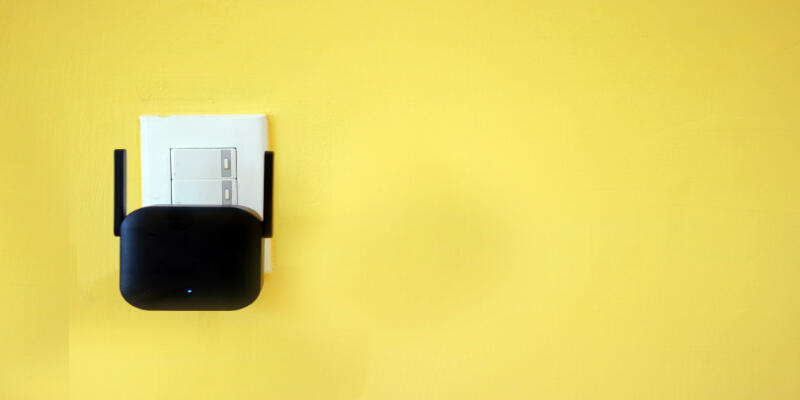Disclaimer: This post may contain affiliate links, meaning we get a small commission if you make a purchase through our links, at no cost to you. For more information, please visit our Disclaimer Page.
One popular question asked by those who use the internet frequently is if it’s possible to use more than one WiFi extender and how many more they can use. Answers to these questions depend on your needs and preferences, so let’s look at this topic.
You can use two extenders. However, it could lead to unsatisfactory performance for the second one. You can also daisy chain more WiFi extenders but it may reduce the throughput of your device. So, you may want to consider connecting each extender to the main router.
A WiFi extender helps boost the wireless coverage to cover larger areas where an internet network is needed. There are benefits a WiFi extender can offer.
It can extend WiFi network coverage space by increasing the amplitude of existing signals. In addition, it enables all wireless devices to connect to the internet, as well as other wireless networks, within the range of the expanded space.
I will explore in this article the number of WiFi extenders you can use, the number that you can use at one time if it is bad to have multiple WiFi extenders, and how many WiFi extenders you need. This will help with decision-making in asking ” how many WiFi extenders can I use?”
Table of Contents
How Many WiFi Extenders Can I Use?
If you have a spacious home with rooms more spread out, you might use two extenders to ensure that the nooks and crannies of your home are covered. It is important to consider a few things if you intend to use more than one range extender.
The first considerable thing is to ensure that you do not connect one extender to another wirelessly. This is to make sure that you get a satisfactory performance.
Connecting wirelessly one extender to another usually reduces standard and optimal performance. So, think about connecting each extender to the main router.
The second considerable thing is to ensure that both WiFi extenders do not broadcast the same Service Set Identifier (SSID)as the main router.
Normally, this is the default setting; however, a lot of individuals usually set up to broadcast the same Service Set Identifier purposely to stay away from programming devices with two separate SSIDs.
This may not be applicable when you involve two WiFi extenders because it is risky to connect them instead of the main router. If you can wire the extenders to the main router through a powerline (or Ethernet) then this restriction will not apply.
How Many WiFi Extenders Can You Use at One Time?
Depending on how you want it, you can use more than one WiFi extender at one time. Several people make use of two WiFi extenders at the same time.
They do this at their respective homes to draw out speed from routers and then expand the speed to cover different areas (dead zones) of the house.
Although speed is important in a WiFi extender, what does most of the work is the range. The extender cannot give you speed faster than what your router offers.
They only give you a longer range so there’s no guarantee of getting a higher speed with an extender. Many people try to use more than one extender to increase the speed.
You shouldn’t be bothered at all using two extenders at one time. This is because if you do, I can guarantee that you will experience the internet with unlimited speed which is free from interference.
You can save on your monthly internet bills with just a onetime investment without compromising the speed limit.
It is undoubtedly a great way to enjoy a good Internet connection which you can do a lot of things with whether it is related to home use, work, or entertainment.
Is it bad to have too many WiFi extenders?
There is nothing bad using multiple or too many WiFi extenders to have the best wireless area. You cause multiple range extenders to have the best wireless coverage area.
There are different ways to use multiple range extenders, and some other available options to spread good Internet access around the office or home.
You can use multiple WiFi extenders on a home or office network, but it will be great if you can spread out coverage on opposite sides of the home or office to ensure that they are feeding off the same router while they amplify the signal in different directions for better overall coverage.
Ensure that that you connect each extender into the main router (not to each other but in its own right). You can also configure each of them to have a different Service Set Identifier (name) and password in order not to confuse one for another.
You can consult online guides or the instruction manuals of your specific brand to learn more about this; the setup and configuration of WiFi extenders are usually very easy.
- There are things to note when considering the use of multiple range extenders. These include:
- They work optimally when you install them in a direct line of sight of the main router
- They work optimally when there are no so many obstructions such as structures and objects. More obstructions and distance can affect their performance.
- They work optimally in open-plan spaces (such as modern apartments)
Emphatically, using multiple WiFi extenders can be an effective way to extend wireless coverage across a larger area of the home. Using only one WiFi extender will only assist with expanding the coverage on one side of the router.
When you install another one on the other side of the router, it can help extend better WiFi to that part of the building, therefore, it is never a bad idea to use multiple or too many extenders in this way.
How Many WiFi Extenders Do I Need?
I will start with the question: “Do you need a WiFi extender?” One of those things that determine getting a WiFi extender is an excellent investment is the WiFi coverage that you have currently in your space.
You may want to add a WiFi extender to the number of the gadget you own if you realize that the connection does not reach different areas in your home or office or the areas have weak wireless signals— this is a great way to save yourself of buying extra cables more expensive networking gear such as hub and switches.
A WiFi extender is a great way you can enhance your current wireless coverage. Using it will enable a stronger transmission allowing reception to bounce across more spaces and rooms.
With this, more people around have the chance to bask in the pleasure of playing online games, streaming videos on their devices, or working on projects that are internet-connected in many areas inside a home or building with no interference.
Sometimes, the connection may be poor. This can be because the router is out of range in specific spaces or rooms or various structures or objects such as thick walls or furniture are obstructing the wireless signals.
These can get in the way causing interference which consequently affects the coverage.
A WiFi extender solves the issue with wireless transmission. It helps eliminate related challenges by capturing the wireless transmission from the router or access point and transmits it into the wireless device.
The number of WiFi extenders you need will depend on the area you intend to access the internet in. Sometimes, you may need more multiple extenders. Irrespective of the number you want to use, ensure that the first extender covers enough range.
In the situation where you need to use multiple units simultaneously, each WiFi extender will connect to the router. You should know that when you use multiple extenders, position them to a limited extent near the router to cast the wireless net.
How far apart should WiFi extenders be?
Many individuals have attempted to set up WiFi extenders in the past without knowing what setup suits this type of device best. This led to complaints about weak signals. Here are some common ways people set up WiFi extenders wrongly:
- Placing the WiFi extenders a long way from the primary router
- Missing out on the Ethernet or wired connections
- Incomplete setup of the WiFi extenders
People make these mistakes regularly because of the tricky nature of WiFi extenders setup. However, with the right knowledge and proper application, you could get the best out of your WiFi extenders. We have got you covered with all the details you will need for an ideal WiFi extenders setup.
Not only will we show you the best position for the WiFi extenders, but also we will provide you with a step-by-guide to make it easier for you.
The best way is to place the WiFi extenders about 150 feet inside and 300 feet outside. The best location for WiFi extenders is midway between your computer and wireless router. Note that the WiFi extenders must be inside the wireless router’s wireless range.
If there’s a need for you to change your position, always ensure that you move the WiFi extenders close to your device but still inside the wireless router’s wireless range.
The perfect connection can be created when the line of sight between the wireless router and WiFi extenders is clear. Also, the line of sight between the computer and WiFi extenders must be clear.
If there are any obstacles, the connection will get disrupted. So, always make sure that the WiFi extenders are midway between the computer and WiFi extenders, no matter your location.
Conclusion
With a WiFi extender, you can extend the range of the signal your WiFi router broadcasts. It serves as a link between the WiFi router and the wireless devices that are not within the range of the WiFi router. Some people prefer using one WiFi extender while others prefer using two or more.
Depending on your needs you can use over one WiFi extender. With multiple range extenders, you can have the best wireless coverage area. Nevertheless, make sure you connect every WiFi extender to the router and be in range with it to access the internet.
Also, you need to avoid connecting one WiFi extender to another— this can deactivate one extender. Finally, ensure that each of the extenders has a different WiFi network name for each other to stop them from connecting 6o one another.


